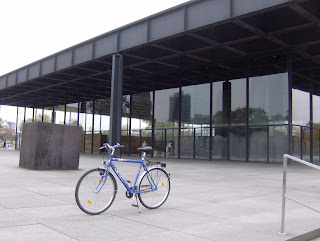As high school kids we hung out in libraries all the time. Only two places in New York City would screen who got to use the reading rooms. The New York Public on 42nd St had a rule that you had to be over 18 to enter, but no one really stopped us from ordering books there so long as we approached the librarian's desk earnestly with a hushed demeanor. Columbia University started checking ID cards in the late 70s probably from fear of crime. So as high school kids we shied away from Butler library. But once in a while we would sneak into the law school library where they had not yet placed any guards, probably because the stacks were modern and bright as opposed to Butler's gothic dungeon. By and large though, there were no restrictions on getting into the libraries of New York, and that a cluster of geeks would stop at nothing to find a back issue of the New England Journal of Medicine never entered the minds of library administrators.
Today institutional libraries require users to demonstrate that they have the proper credentials, but their motives are totally different. They are not trying to keep the place quiet or prevent muggings. It's not even the fear of terrorism. The real motive is financial.
The spread of security passwords has the effect of creating barriers that protect property, not unlike enclosures around common fields at the end of the eighteenth century when capitalist agriculture restructured the English countryside. Today, the more security barriers are strictly enforced, the more certain publishers are that their on-line services will not be accessed by those, who are not part of the fee structure.
After 9/11 there came a wave of security password protection on libraries. The occasional suggestion was made that terrorists would use free public computers to plot attacks, and librarians protested at the requirement that libraries track the books users check out. Once that requirement was dropped, the pass words still remained, and they exist now, one suspects, so as to allow libraries to buy and publishers to sell online journals, books, reference databases and the like.
The ease with which academics can research online is of course made possible by the passwords that protect the property of the publishers who sell their content to the library. Now admittedly there has been little file sharing of academic databases. How often does one download a pdf from a journal in order to spread it around the internet? Never. Passwords are the hedge around the academic field. Few wish to poach there these days. High school kids may sneak in, but they do so from their computers, not on foot past a hung over security guard.
So the next time you type in your user ID along with an eight symbol figure, know that you are entering a financial deal built upon the hysteria of terrorism.

